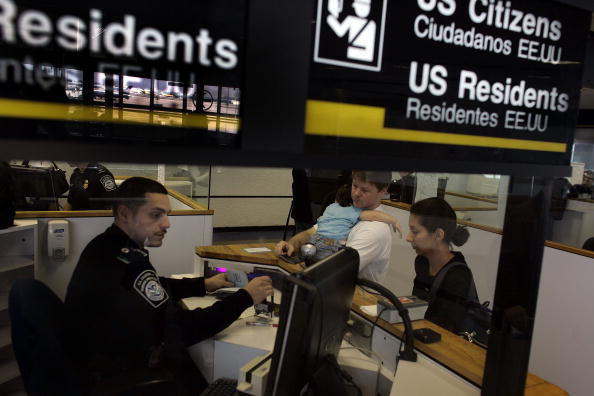European Union-based travellers have faced a new requirement to pay £16 (€19) for an Electronic Travel Authorisation (ETA) to visit the UK from April — but early users have complained the app simply did not work.
The ETA, which most EU citizens would need to travel to the UK from April 2, carried an initial cost of £10 (€12), rising to £16 from April 9. But many Europeans who needed one said they found using the app to apply for it practically impossible.
The app was “the worst piece of sh*t I have ever had the displeasure of using”, wrote Jacob Scheel Hansen, a Danish software developer, on X on March 5.
Belgian Jan D’Hondt agreed on March 7 on X, calling the UK Home Office’s app “one of the worst experiences ever”, where “every step needs to be done over and over again”.
The app asked for photographs of the person applying but “every picture taken needed to be redone two or three times”, while scanning the chip containing biometric information “worked after four retries and only on the back of the passport”, D’Hondt said.
Then, trying to pay at the end with Google Pay, “the app hangs” – did not respond – he added.
Non-EU visitors, including from the US, Canada and Australia, have since 2023 had to apply for the online document, which was described as “a digital permission to travel to the UK”.
David Honeyford, an Alliance Party member of the Northern Ireland Assembly, complained that tourists were cancelling travel plans because of the “additional layer of bureaucracy and expense for people that may consider travelling to Northern Ireland”.
The new requirement would damage Northern Irish tourism, since “almost 70 per cent of visitors to Northern Ireland travel via the Republic, often arriving on the island into Dublin Airport”, he added. These visitors would need an ETA to cross the border between Ireland and Northern Ireland.
The introduction of the ETA scheme was “already having a clear and detrimental impact on our tourism sector”, according to Northern Ireland Tourism Alliance head Joanne Stuart.
There have been “tour operators reporting significant cancellations and Northern Ireland being removed from itineraries”, she added.
Noel Vest, a university professor in Boston who was jailed in 2003 for seven years, posted on X on March 20 that his application for an ETA had been refused because of it.
Blanket policies against people who had been in prison in the past “no matter how long ago or what has been accomplished since” were “draconian and demoralising”, he said.
“There is no formal appeal process for a refused ETA,” noted immigration law firm Fragomen.
Irish citizens would not need the ETA, since Ireland and the UK were part of a Common Travel Area. Citizens of both countries had a broad range of citizen-like rights when living in the either country, including a right to vote in domestic parliamentary elections.
While the EU was introducing its own equivalent new travel authorisation under the European Travel Information and Authorisation System (ETIAS), the EU’s travel advice website on March 10 was updated to indicate the new authorisation “will start operations in the last quarter of 2026”.
The ETIAS, which will cost €7 per application, would not take effect until six months after a much-delayed Entry and Exit Scheme (EES) was working at all Schengen Area border crossings.
Initially set to launch in November 2024, the EES was delayed a month earlier when the European Commission was forced to admit the central database was not ready.
The French IT group ATOS, which in 2019 won the contract to work on the database, reportedly used its Moscow office in 2021 to buy software for the project.
As well as working on a project gathering and storing biometric data on all visitors to the EU, ATOS’ Moscow office worked under a licence granting Russia’s FSB spy agency access to its work, according to the UK’s Sunday Times.
“It’s as bad as it sounds,” commented the newspaper’s business editor Oliver Gill on February 6.





